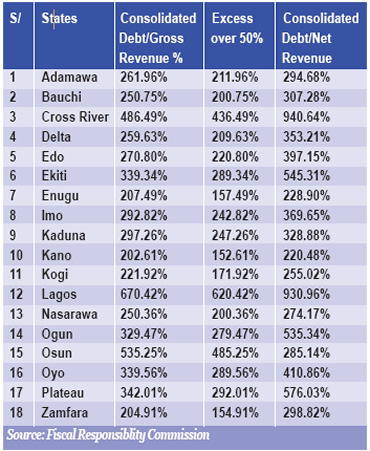Child X, the pupil allegedly defiled by Adegboyega Adenekan, a 47-year-old Chrisland School supervisor, on Thursday testified at an Ikeja Sexual Offences and Domestic Violence court in Lagos and confirmed that she was abused.
Child X, who is now four-years-old, was two years and 11-months at the time the alleged defilement occurred serially in 2016 at the Victoria Garden City (VGC) branch of the school.
The trial which was slated to begin at 2pm, due to other matters, did not start until 3.26pm. It ended at 5.53pm.
Before Child X’s testimony, Justice Sybil Nwaka, had ordered that members of the public vacate the public gallery of the courtroom. However, she allowed journalists and lawyers to witness the testimony.
When Child X was brought into the courtroom, the judge rose from her bench to sit by a desk opposite Child X.
Justice Nwaka engaging Child X in small talk said: “I love your shoes, we are all your uncle and aunties here. Do you like the building? Do you know why you are here?”
Child X said: “I’m here to talk about the bad things Mr Adenekan did to me.”
Justice Nwaka responding said: “You know you are here to tell the truth, Jesus loves children and what do your Sunday School teachers tell you?”
Child X: “Always tell the truth.”
Before Child X took oath as a witness, Justice Nwaka repeated to her not to be afraid to tell the truth and that the people in the courtroom are all her friends.
The judge warned journalists against taking photographs, making recordings or revealing the identity of Child X.
The prosecution led by Mr Jide Boye, the Chief State Counsel led the child in evidence by asking a series of questions and getting the following responses from her.
Prosecution: “How old are you?”
Child X: “Four”
Prosecution: “How many schools have you attended?”
Child X: “Two”
Prosecution:” What are the names of the schools?”
Child X: “Chrisland, Grange School”
Prosecution pointing across the room to Adenekan: “Do you know him?”
Child X: “No”
Prosecution: “Who is Mr Adenekan?”
Child X: “When I go to class after recess, I see Mr Adenekan after recess”
Prosecution: “What did Mr Adenekan do to you?”
Child X: “He put his mouth in my wee-wee, the first time he did that, he took me out of the class. The second time, I ran. I tried to report to my teacher but my teacher did not believe me, so I reported to my mummy.
“First time he did it was inside his office which was the toilet, the second time he did it was in the hall which was outside.
“I did not like what he did, he put his hand in my wee-wee, he put his wee-wee in my wee-wee and he put his mouth in my wee-wee.”
The prosecution at this point proceeded to show Child X three photographs, one of which was Adenekan’s.
Child X identified Adenekan’s photograph.
Child X said: “This is Mr Adenekan, I remember how he used to greet me but I don’t know where he is.”
Prosecution: “How did you feel when he was doing it to you?”
Child X: “I felt I should tell my mummy, I felt pain.”
Prosecution: “When he did it, what were you wearing?”
Child X: “My Chrisland School uniform.”
Prosecution: “Can you describe how he did it to you?”
Child X: “He put his hand under my uniform, he put his hand in my wee-wee, pull my uniform down and it was really really paining me.
“When it was really really paining me, I screamed and he covered my mouth like this (demonstrated with hand over her mouth).
“I couldn’t do anything because he covered my mouth. When I was trying to remove it (his hand) he tightened my mouth.”
Prosecution: “Describe his office”
Child X: “I cannot remember.”
The defence counsel, Mr Olatunde Adejuyigbe (SAN) opposed the tendering as evidence, the three photographs shown to Child X during proceedings. According to him, the prosecution did not comply with Section 86 of the Evidence Act.
In his submission Boye told the court that in accordance with Section 84 of the Evidence Act, photographs are no longer secondary evidence but primary evidence and as a result, the photographs should be admitted as evidence.
In a short ruling Justice Nwaka said: “I cannot agree more with the prosecution. These photographs do not have a certificate. I mark them tendered but rejected.”
While cross-examining Child X, Adejuyigbe asked her the following questions.
Defence: “Do you like to draw?”
Child X: ” I don’t know how to draw yet but I like to draw”
Defence: “You said something really really pained you, when you got home did you tell your mummy about it?”
Child X: “Yes”
Child X responding to Adejuyigbe’s questions, recalled some of her pre-school teachers at Chrisland School.
Defence: “Did anyone tell you before that he will kill you?”
Child X: “I don’t know what that means”
Defence: “Did you see Mr Adenekan today,?”
Child X: “I only saw him in the picture.”
Defence: “Do you know there are three tables in Mr Adenekan’s office? ”
Child X: “No”
Defence: “His office is not near your class, do you remember?”
Child X: “No”
Defence: “Have you entered Mr Adenekan’s office before?”
Child X: “Only when he did the bad things to me”
Defence: “Did he take anyone else with you?”
Child X: “No”
Defence: “Did you take your mummy to any corner?”
Child X: “No when I told her what happened to me, she changed my school.”
Defence: “Does your aunty (name withheld) bath for you?”
Child X: “Sometimes her but everytime my mummy.”
Defence: “Have you seen the police before?”
Child X: “I have seen them guarding the door at the gate before I enter my school gate.”
Defence: “Is there a doctor’s office at your school? ”
Child X: “Yes”
Defence: “Do you go to the toilet alone in school? ”
Child X: “When I want to go by myself they (teachers) still follow me”
Defence: “Did anyone tell you what to say when you get here?”
Child X: “No”
Earlier during the cross-examination of Child X’s mother, the video in which Child X was portraying her alleged defilement at a clinical psychologist’s office was replayed in court by the defence.
The mother (name withheld) admitted to the defence that some parts of the sessions of Child X’s interview with the clinical psychologist were not recorded.
“At the time she started drawing the private part, I can confirm to you that I was in the corner of the room and I only asked my child questions regarding the defendant’s name,” she said.
The mother also told the court that she reported to the police that the defendant took her child to a corner in the school where he allegedly defiled her.
“I mentioned the corner to the police and it is in my statement. Like I said before, I initially wanted to cover it up.
“I mentioned it to the school authorities but I later told them to forget it that it never happened.
“I was afraid of people like you (pointing at the SAN), it is a shameful act,” she tearfully said.
Justice Sybil Nwaka adjourned the case until May 21 for continuation of trial at 11am.




















